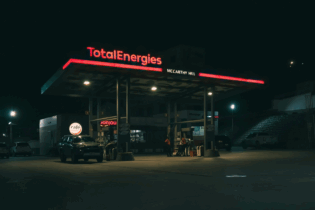Pictured: John Edmeston, MD of Cartrack South Africa
Fleet management and driver monitoring technology are important aspects in any transport operation, no matter the size or scope. Simon Foulds speaks to some of the industry’s leaders to find out how fleet operators can benefit from this technology, especially with ever-increasing operational costs. Concerning the importance, Gert Pretorius, MD of MiX Telematics: Africa-Fleet Solutions says: “Implementing an effective fleet management system is essential for fleet operators who aim to boost productivity and efficiencies, as well as health and safety levels. However, a significant amount of fleet operators are not fully aware of the technology available to them, nor is it being implemented to its full potential. To stay ahead in today’s competitive environment, it’s vital to make use of the tools available – and know how to use them to gain insights into your fleet operation.” John Edmeston, MD of Cartrack South Africa adds: “Rising transport and fuel costs, toll fees, vehicle maintenance costs, hijackings and the challenges around managing driver behaviour are placing enormous pressure on fleet owners and companies to find effective and sustainable ways of managing fleets, drivers and their driving habits while contending with time management, risk and variable maintenance and operating costs. Vehicle tracking with full telematics features is an essential requirement to achieve optimum fleet performance. “Ensuring the safety of drivers and other road users, and minimising losses in an industry that operates on very tight margins is imperative and requires sophisticated fleet management and driver behaviour monitoring.” Dean Andrews group marketing manager for Ctrack South Africa comments: “Drivers have a direct influence on most aspects of a fleet, i.e. productivity, client service, vehicle economics and costs. Fleet operators therefore have to know who, when and how their vehicles are utilised from the moment they leave their depots. Changes in legislation such as AARTO also put a legal obligation on fleet operators to know and to prove who was driving a vehicle in case of a traffic offense. Fleet operators make a living in an extremely competitive environment –so much so that their livelihood, growth and economic survival often depends on the cost they control, costs they reduce or productivity they improve. Adherence to customers’ service level agreements is part of their daily routine and they must therefore have visibility and control on all aspects of their fleets.” Benefits “Knowing where your drivers and vehicles are, coupled with having information on how they are performing, means fleet operators are in control of their fleet’s performance. The technology facilitates informed decision-making in a timely manner as well as the ability to take action and rectify issues like poor driving behaviour,” says Pretorius. “In-cab technology transmits data on things like trip start and end times, trip duration, speeding, over-revving, harsh acceleration, harsh braking and excessive idling. Monitoring these events in relation to the driver and/or vehicle means operators can improve vehicle utilisation and driver behaviour. This data is accessible 24-hours a daythrough secure web and mobile applications. “In addition, by being able to identify the vehicle closest to a customer site and assign jobs accordingly, fleet operators can accurately predict the time of arrivaland better manage routes and delivery schedules. While improving customer service, this aspect also helps to save costs through becoming more efficient.”Edmeston states: “Cartrack’s comprehensive range of fleet management solutions provide for efficient and accurate reporting and control of costs, allowing you to manage driver behaviour as well as draw accurate, real-time data for analysis and improvement planning.Cartrack’s fleet management systems provide the answers to the ‘how and why’ questions that allow for proactive planning and intervention, rather than simply monitoring distances travelled.”
Cost savings Pretorius says thaton average, customers can benefit from a sustained 10% saving on fuel costs, which represents massive savings for many customers. “This benefit is critical considering that the rising cost of fuel is one of the biggest threats to fleet operations today. In Frost & Sullivan’s 2009 report,Demand for Green Telematics to Challenge Slowdown, it was pointed out that an effective fleet management system has the potential to influence up to 62% of operating costs.” Andrews expands on this, saying: “Evidence suggest that fleets can achieve up to 15% reduction in maintenance costs,a 15% saving in fuel (via a reduction in unauthorized usage, more sympathetic driving and better routing), an 8% reduction in insurance premiums and a massive 35% reduction in accidents.” Edmeston continues: “While economic changes may impact on the way we do business, fleet management solutions provide professional, sustainable solutions on how best to manage your fleet costs, driver behaviour and overheads. While the costsavings will vary from client to client depending on their unique challenges and circumstances, using fleet management solutions will have far-reaching benefits.” The latest trends “It is becoming more evident that integration between various solutions is becoming more of a requirement from customers,” says Andrews. “Examples of such integration are the integration between telematics solutions, route planning and scheduling solutions, and execution management solutions. In modern times it is critical to plan efficiently, schedule accurately, monitor in real time, have the ability to adapt quickly by making informed decisions and have the ability to debrief drivers quickly and effectively after a day’s events.” Pretorius states: “The ‘greening’ of fleets is still an important trend, considering the environmental damage caused by the road transport industry. As pressure mounts for fleet operations to minimise their carbon emissions where possible, more companies – especially multinationals – will be required to report on their emissions.” Edmeston concludes, saying: “Clients generally want a one-stop solution to their many and varied fleet management and vehicle recovery services and the trend is to provide a number of customised features and services thathelp optimise our services to a given client.In many instances, large transport companies will have existing systems supporting their logistics, such as mapping and route planning. In such cases the ability to integrate the tracking system data into the clients’ systems is important, as is providing a single holistic solution.”






